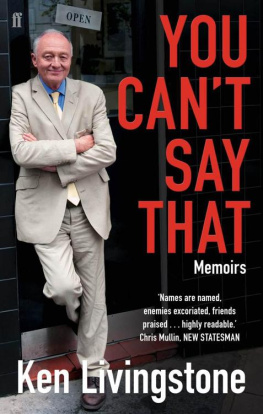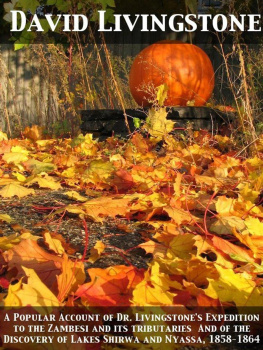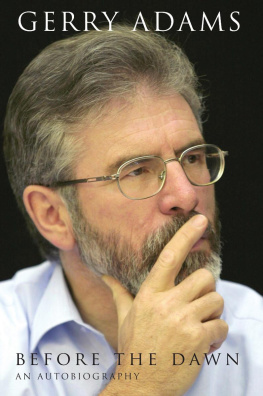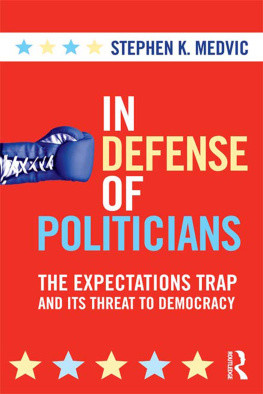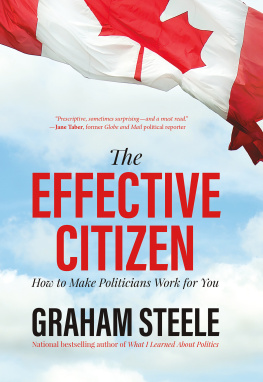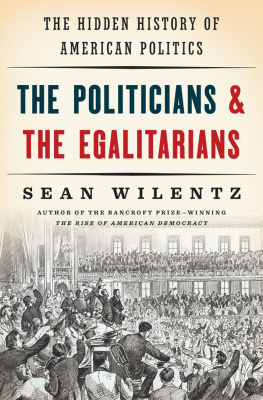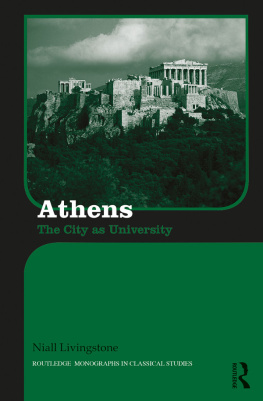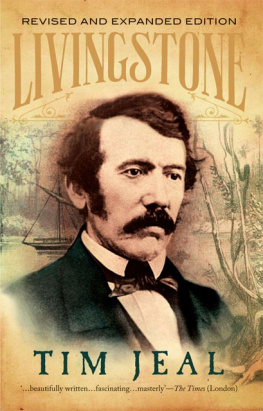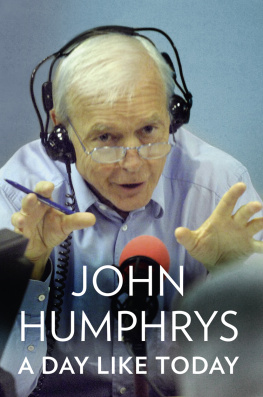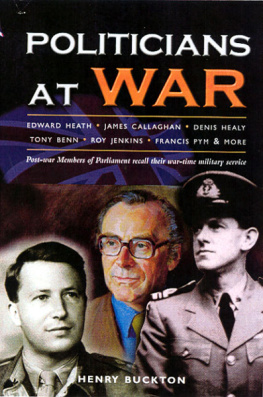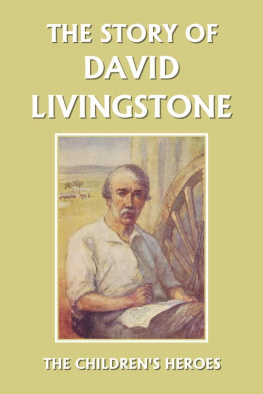KEN LIVINGSTONE
You Cant Say That
MEMOIRS
To Emma, for it all
All photos are courtesy of the author except where specified. The publishers would be pleased to rectify any omissions or errors in copyright brought to their notice at the earliest opportunity.
The Lambeth Walk
19451962
My parents relationship was the most important thing in both their lives, and they remained passionately in love until my fathers unexpected and shocking death at the age of fifty-six. They married in Wandsworth on 31 July 1940, just eight weeks after they had first met at a music hall in Workington. My mother, Ethel Ada Kennard, was a dancer who was part of a three-woman act called the Kenleigh Sisters. My father, Robert Moffat Livingstone, was in the audience one night with two shipmates on shore leave from the merchant navy. Having had enough drink to boost their confidence, the sailors waved and winked before passing a message to the three women to join them for supper in the local fish-and-chip shop.
Ethel, shy and easily embarrassed, was appalled when Bob started singing to her the Bing Crosby hit I Have Eyes (to See With But They See Only You). I wanted the ground to open and swallow me up, she said later. But for all her embarrassment it was love at first sight. She told John Carvel, who wrote a book about me in the 1980s, Citizen Ken , It was a lovely number. And he really meant it. We were meant to meet. They each left the fish-and-chip shop that night to phone their respective fiancs and tell them that they had found someone else.
As Ethel was on tour, and Bob at sea, it was possible for them to meet on only three occasions before they got married in the summer of 1940, both aged twenty-five. The years that followed were difficult. Bob was on duty for long periods of time. Following Hitlers invasion of the Soviet Union in the summer of 1941, he worked as a ships master on the perilous Arctic Sea convoys of arms shipments to Murmansk in northern Russia. Prime Minister Winston Churchill and President Franklin Roosevelt had decided that the Soviet armies should be sustained at all costs in their titanic struggle against the Nazis. Dads affection for Russians dated from his visits to Murmansk. Their generosity to him when they had so little themselves left a deep impression.
The British navys resources were stretched thin and the human cost of the convoy system was brutal. Nazi submarines would lie in wait and many sailors lives were lost. Dad was incredibly lucky to survive the torpedoes that struck his ship as a U-boat worked its way along the line of ships, sinking each in turn. Had Dad been in the vanguard he would surely have died, but after the first ship sank sailors on the other vessels gathered by the life rafts to wait for the inevitable torpedo strike. After days adrift in the appallingly cold conditions of the Arctic Sea, Bob was rescued and invalided out of the service. He went to live with Ethel in the small flat her mother rented in Streatham. He had barely met his mother-in-law before the marriage. Dad had no idea what lay in store for him.
My grandmother, Zona Ann Williams, was born in 1888, a year before the creation of the London County Council (LCC), and grew up in South London around Balham and Tooting. As a boy I was mesmerised by her sanitised tales of life in nineteenth-century London. Nan was one of seven children (only five of whom survived) and raised under a regime of strict Victorian values. Life was not easy for her, but she experienced nothing like the crushing poverty that afflicted poorer London families just a couple of miles north in the slums of Kennington.
Nan turned her back on her family as a teenager when she came home late one night and was savagely beaten by her father. She packed her belongings and left to work in the pubs that serviced the theatrical trade she idolised. She fell pregnant by her future husband Charles Kennard, a painter and decorator raised by his grandparents in Eastbourne.
The shame of being pregnant and unmarried was such that to her dying day Zona never admitted her secret to anyone, including her children. Only after Nans death did my mother discover that she had changed the dates on her wedding certificate to hide her disgrace.
I was told my grandfather was blown to bits by a German shell in Flanders just two months before the birth of his second child, my uncle Ken, but the truth is more complicated. Zona insisted he was a wonderful man with a constant smile, but the fact that he did not marry her until two months after my mother was born suggests he was not as committed as she later convinced herself he was. Within two weeks of the outbreak of war he had enlisted in the 6th Battalion of the Dorsetshire Regiment, but his rebellious streak landed him on charges six times in three years. He was dispatched to France two years later on 3 July 1916, where he was wounded in the Battle of the Somme. He was jailed twice, once for twenty-one days for being absent without a pass, drunk and lying to an officer. A seven-day sentence followed, this time for being absent without leave for two and a half days and for missing a military tattoo.
Uncle Ken always insisted that my grandfather died because our soldiers were sent forward to certain death so that their bodies would fill the enemy trenches and allow British tanks to pass over their corpses. In 2005 Ancestor Incorporated suggested it was more likely that my grandfather, having committed yet another offence against the regulations, was sent to the front line by his commanding officer simply to avoid the delay and expense of a court martial. Whatever the truth, Private Charles Joseph Kennard of 142 Hartfield Road, Wimbledon, died at Arras on 16 May 1917, aged thirty-two.
*
Zona never took up with another man. Turning inward, she devoted herself to raising her two children in a succession of rented rooms in South London. Having fallen out with her parents, Nan was far too proud to go to them for help so she lived on her war widows pension and the wages she earned from occasional shop work. Mum recalled trips to local markets just as they were closing and the food was sold at half price, saving enough money to buy a bottle of cheap port, which was Zonas favourite tipple. Mum was left with rotten teeth, though Nan did pay for them all to be taken out and replaced with dentures as a twenty-first birthday present.
Nan was determined that Ethel was not going to skivvy for a living so she planned for Mum to fulfil her own dreams of a career on the stage. By skimping and saving, Zona was able to enrol Mum in ballet lessons and she performed well in several competitions. In a less class-ridden time Mum might have joined a professional ballet company, but instead had to settle for a job as an acrobatic dancer touring provincial music halls with the famous names of the day: Donald Peers, Tommy Trinder, Two-Ton Tessie OShea and Cecil Lyle, the Great Illusionist, who daily sawed Mum in half. When Mum joined the company, Nan found her lodgings in Reading . It was the first time fourteen-year-old Ethel had been away from home so she cried herself to sleep in her one-room digs. The next day she met Jo and Nan, two other girls in the show. They became close friends and formed the Kenleigh Sisters, doing tap-dancing routines, ballet and the kind of back flips and balancing manoeuvres that are now part of modern gymnastics. The three of them shared digs throughout my mothers fifteen years on the stage and they remained firm friends for life.
Uncle Ken did well in his local LCC school and would have stayed on had there been enough money. Instead he left at fourteen and went to work for Mr Campbell, a local tailor and leading figure in the Streatham Tory party who represented the constituency on the LCC. My uncle spent his life in both the rag trade and, apart from one brief interlude, the Tory party. In 1949 Winston Churchills son-in -law, Duncan Sandys, was parachuted into this safe parliamentary seat which had been nurtured by Campbell for years. My uncle was so angry at this that he resigned from the party and got Dad to write to the local paper complaining about the treatment of his employer. I remember Mum anxiously asking Dad, Are you sure we wont get into trouble for doing this? Uncle Ken was right to be outraged as Sandys completely neglected his constituency, appearing only once every five years when he was driven through Streatham in an open car waving to the voters on the Saturday before polling.
Next page
